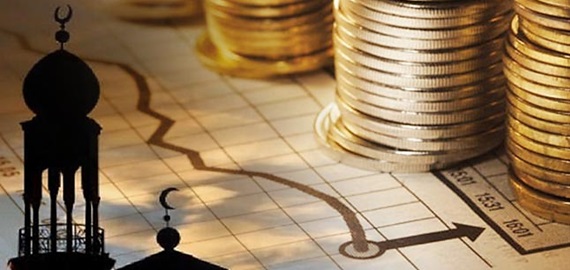The Abuja National Mosque receives thousands of worshippers. Just three minutes away, down Constitution Avenue, is the headquarters of the Nigerian Securities Exchange Commission (SEC). One of the aims enshrined in its recently revised Capital Market Master Plan is to make Nigeria an African hub for Islamic capital market products by 2025.
On paper, Nigeria has all the ingredients required to make it a centre for African Islamic finance. It has Africa’s largest economy; the continent’s largest population, of which roughly half are Muslim; and a fast-growing market in sukuk – Islamic bonds. Given Africa’s vast infrastructure funding needs of roughly $100bn a year, and the rapid rise of green bond issuance, for Nigerian policymakers it seems that a vast market is there for the taking.
According to Fitch Ratings, Nigeria’s sukuk market has outstanding issuances of N755.5bn ($1.6bn). This is a fraction of the global $1.6 trillion sukuk industry. Meanwhile, the broader Islamic banking market in Nigeria, while also growing, holds just 0.8% market share by total banking industry assets.
“Islamic banking assets in Nigeria increased 71% year-on-year in 1H22,” writes Bashar Al Natoor, Global Head of Islamic Finance at Fitch. “Only three full-fledged Islamic banks and two Islamic windows are operating in [the country], with all having small capital bases and a limited distribution network.”
Across the African continent, the sukuk market is in its infancy both from a local and international market perspective. While there have been quite a few local-currency issuances, there have only been two international ones in the last 10 years – a 5.75-year $500m sukuk from South Africa in 2014, and a three-year $150m sukuk from Africa Finance Corporation in 2017.
According to Standard Chartered Bank, total African sukuk issuances between 2001 and 2021 amounted to $25.3bn, constituting just 1.55% of the global sukuk industry. Despite Nigeria’s rise, Sudan remains the dominant African player in sukuk issuances. Other countries that have issued sukuk bonds include Senegal, Gambia, Togo, Côte d’Ivoire, Morocco, and Mali.
“Egypt, Morocco and Tunisia have also made the necessary regulatory and legal changes and are ready for issuances,” writes Ahsan Ali, managing director and head of Islamic origination at Standard Chartered Bank in Dubai. “Being Muslim-majority countries, and with closer proximity to the Middle East, that gives them a natural advantage to tap international sukuk investors.”
The origins of new instruments
Developed in the late 1960s, Islamic finance emerged from a desire to provide wealthy Islamic entrepreneurs with alternative forms of finance.
“Wealthy Arabs would come to London for business but they’d want to do deals in line with Islamic principles,” says Jonathan Ercanbrack of the School of Oriental and African Studies in London. “Back then, all of this was untested. Some conventional merchant banks were providing structures to facilitate these deals. However, the Dubai Islamic Bank was the first Islamic finance commercial institution to be established, in 1975.”
In parallel with sukuk bonds, green bonds have emerged as an important source of capital for companies and sovereign funds around the world. According to the World Bank, annual global green bond issuances increased between 2010 and 2020 by 5,300% from $5bn to $270bn.
But can a fledgling African sukuk market ride on the coattails of a burgeoning green bond market? According to Ali of Standard Chartered Bank, the main challenge would be the lack of a supportive legal and regulatory framework in many African countries.
“Since Islamic finance uses concepts such as trading of goods, leasing of assets, and partnership contracts to create financial products that comply with Islam’s ban on usury (or interest), appropriate changes to the banking and financial regulations and taxation laws need to be made to accommodate the creation of such products,” he says. “This is essential to ensure a level playing field between Islamic and conventional players and products, so that there is no extra economic cost to the provider or user of Islamic products.”
Islamic law’s ban on interest is one of its key features, and perhaps its most famous. This aligns very strongly with the growing ESG agenda. Within Islamic law, investment generally takes place in tangible assets to which value is added. Profit is realised when the asset is later sold, with profit accruing to the marked-up value of the asset. But what challenges does the necessary interpretation of Islamic texts bring to this process?—African Business










